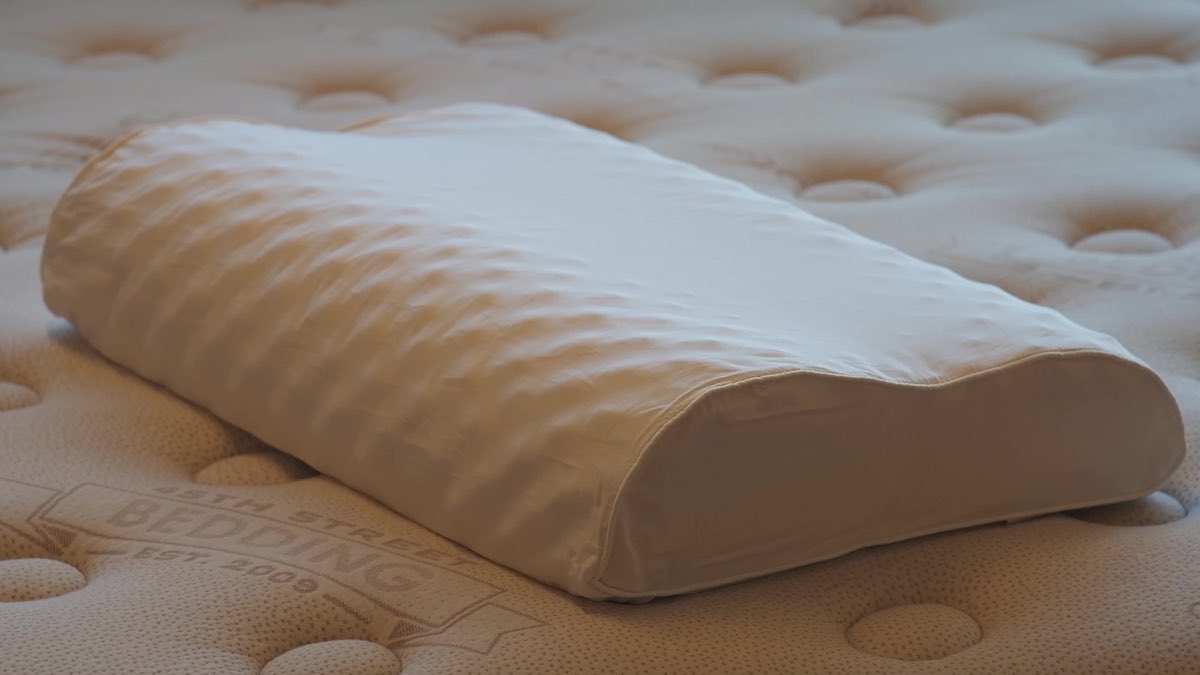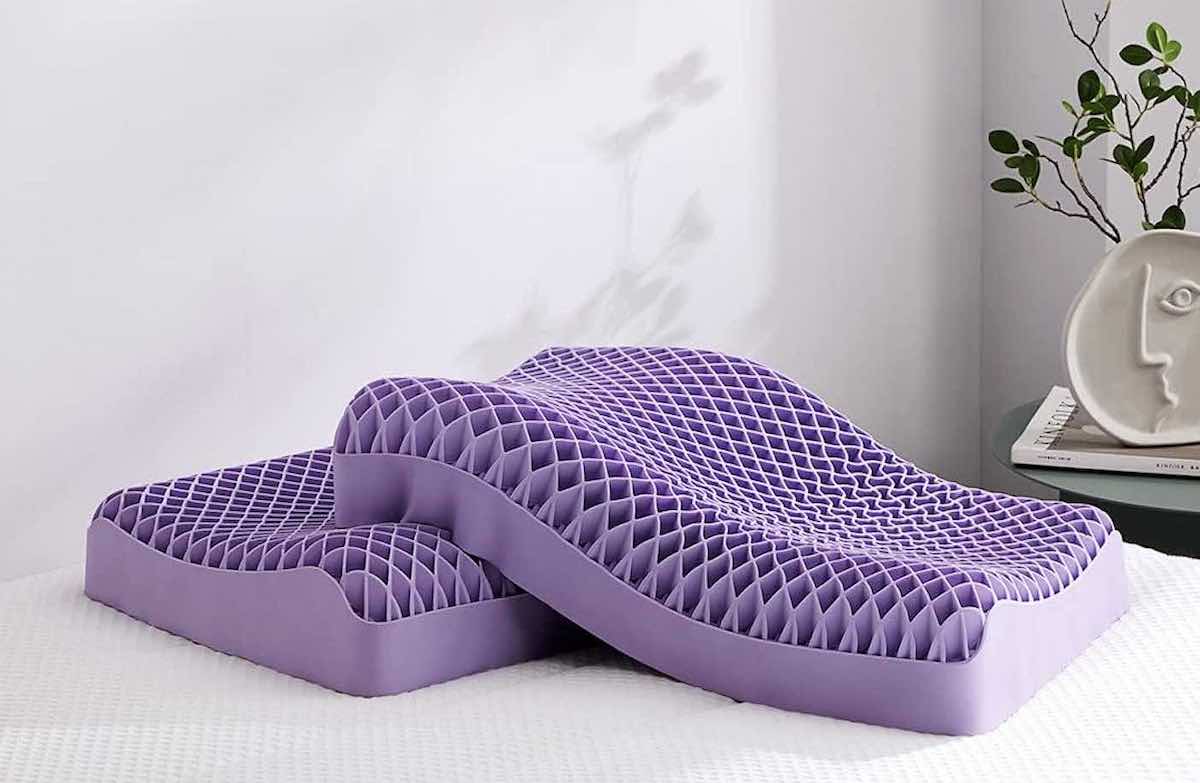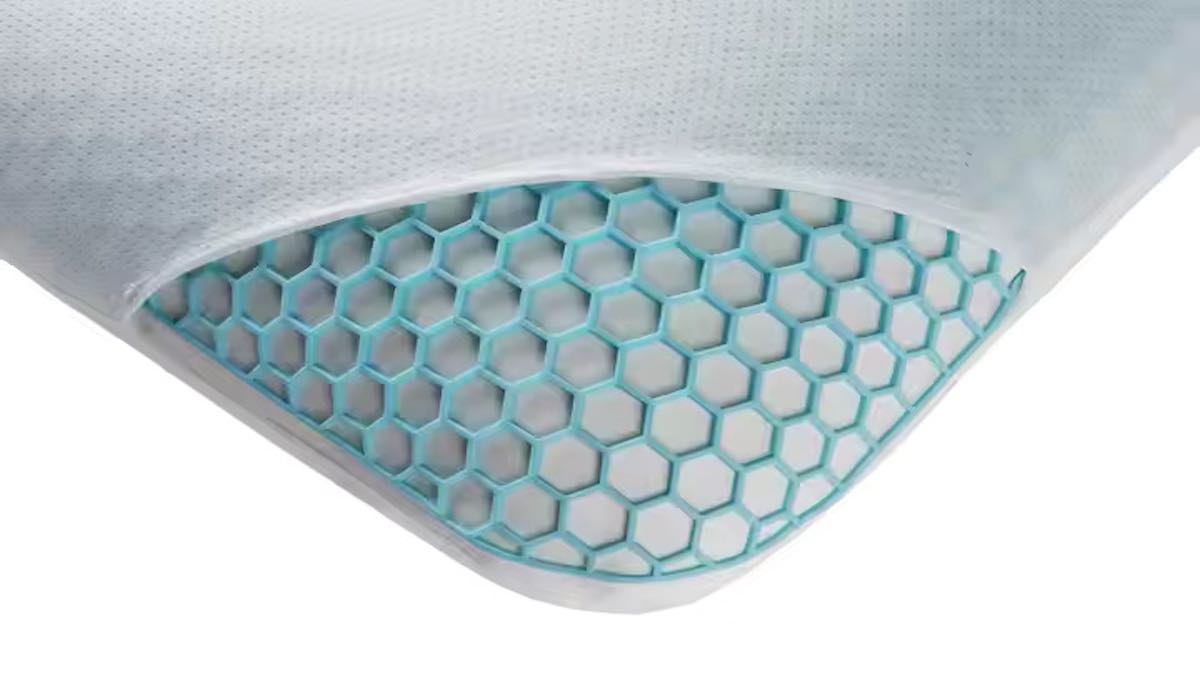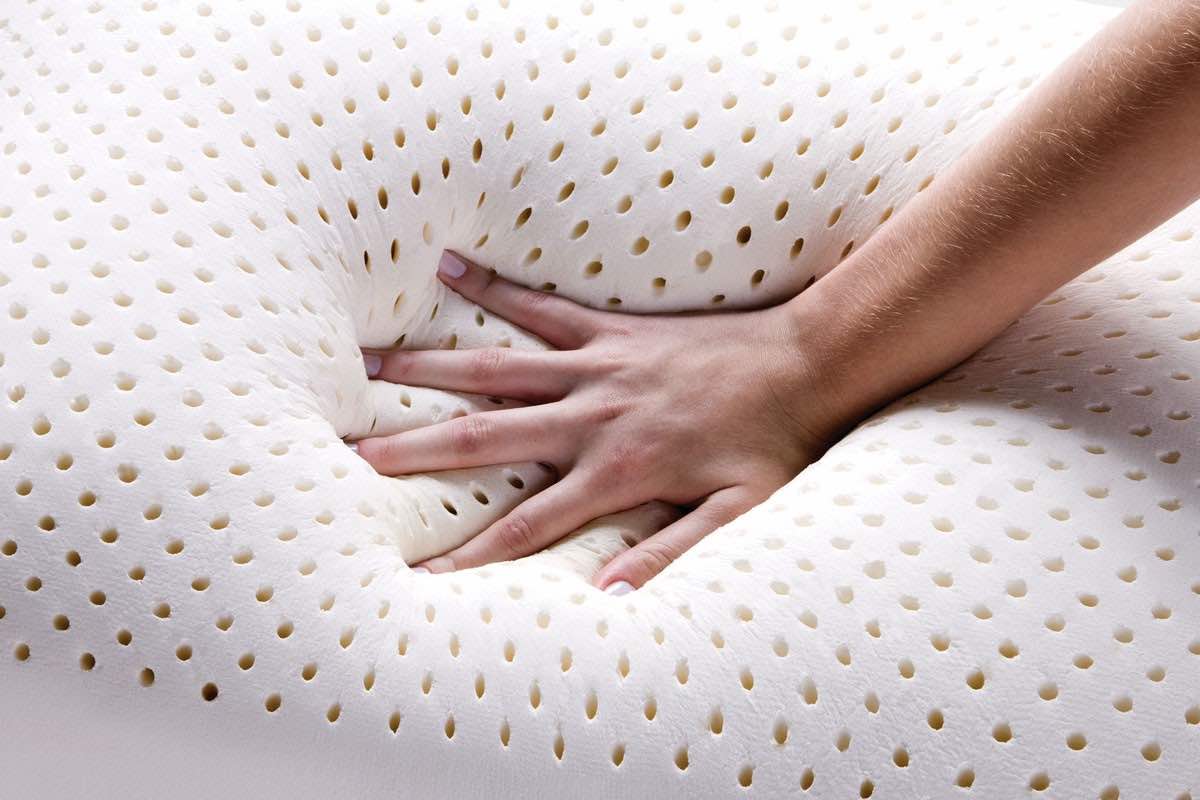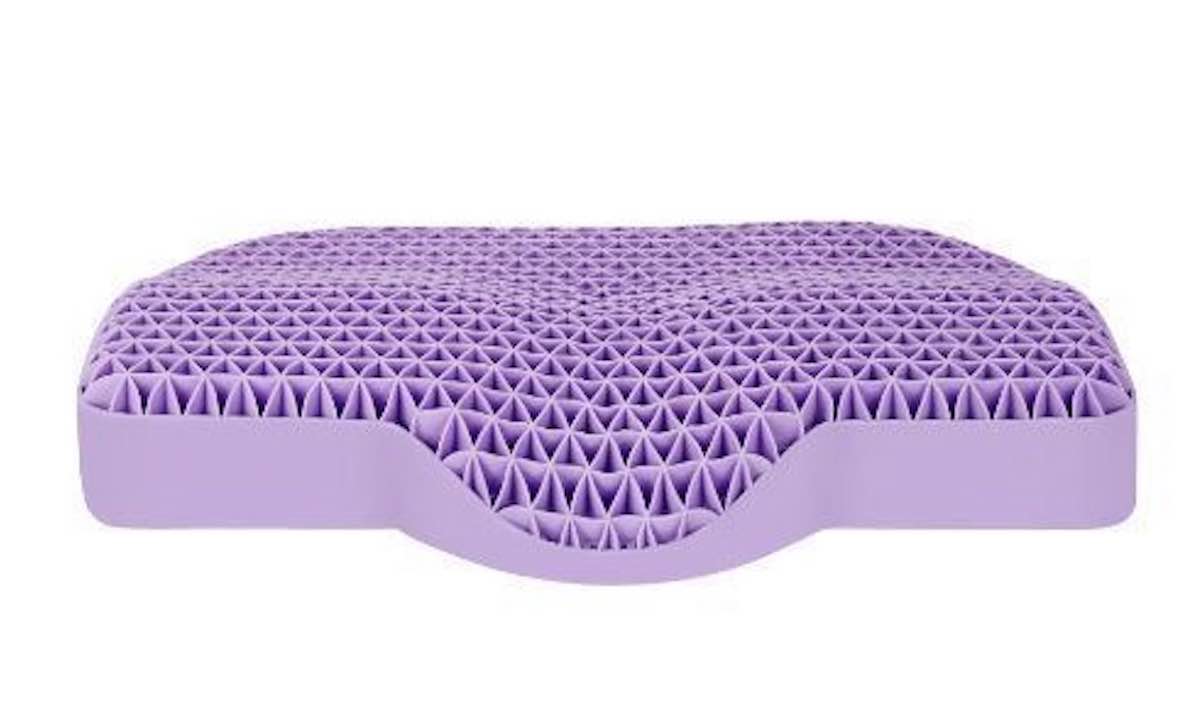Sleep is an important aspect of our lives, and getting quality sleep is vital to our physical and mental health. We spend hours (even years) of our lives leaning on pillows, seeking comfort and support to fall into a restful sleep. One of the most important factors affecting sleep quality is our pillow. Many pillows look the same, but the level of support they provide varies greatly. A great pillow for a back sleeper may be a poor choice for a side sleeper.
In this article, we will discuss the advantages of the increasingly popular TPE pillows which combines the advantages of traditional memory foam and natural rubber, and has better elasticity, comfort and breathability.
1. What is TPE?
As with rubber, TPE has high elasticity and strength. It also has the processing characteristics of plastics and is a new type of energy-saving and environment-friendly polymer material between rubber and plastics. Many fields can use it instead of traditional vulcanized rubber or soft PVC materials. Various resin materials can also be synthesized and modified simultaneously.
TPE can be recycled and is safe, non-toxic, and environmentally friendly. The waste incineration process is energy-efficient and produces no environmental toxins. The processing method can be secondary injection molding or fractional injection molding. This feature shortens the production process of the rubber industry by more than 75%, saves energy consumption by more than 60%, and improves efficiency by 10-20 times. Rubber and plastic materials and processes have undergone another technological revolution.
2. Features of TPE pillows
Pillows made of TPE materials also have many advantages. They are soft and comfortable, and their anti-allergic properties are very popular. The following advantages can help you better understand TPE pillows.
- Ergonomic design: The contour pillow’s engineering design meets the needs of different heights. It aligns the spine, reduces head, neck, and shoulder pain, and maintains its shape after regular use to improve sleep and relieve neck and shoulder pain.
- Advanced TPE Material: During sleep, the pillow cover can be adjusted to meet the pressure exerted on the head and neck by the TPE high-tech material.
- Smart honeycomb grid structure: hollow honeycomb design, upper and lower layers, effectively support the head and neck, free ventilation, allowing you to sleep comfortably all night.
- 360°Washable: The pillow adopts a 360°washable design, which can easily clean the dirt and sweat from the pillow core, creating a clean and hygienic sleeping environment.
- Breathability: TPE pillows have good breathability, which can reduce heat accumulation inside the pillow, keep it fresh, and prevent bacteria from growing in a humid environment.
- Environmental protection: TPE material is an environmentally friendly material, does not contain harmful substances, and is harmless to the human body. Used TPE can be recycled after simple regeneration treatment, reducing environmental pollution and expanding the source of renewable resources.
3. Suitable people for TPE pillow
TPE pillows are suitable for most people, especially for the following types of people:
- People who need neck support: TPE pillows can provide better neck support and are suitable for people with spinal or cervical problems.
- People who sweat easily or feel hot easily: Because TPE material has good breathability, it is very suitable for sleepers who sweat easily or feel hot during sleep. It can effectively reduce the frequency of waking up at night and ensure good sleep.
- People with allergies: Since TPE materials are naturally non-toxic and non-irritating, they are suitable for people who are allergic to chemicals. Some people may be allergic to latex or buckwheat, both of which can be found in pillows on the market. Therefore, it is more appropriate and safer to choose a pillow made of TPE.
4. How do we choose the best pillows to sleep on
A new pillow might be a small buck, but it matters. We considered the following factors to ensure we only recommend high-quality pillows:
- User Reviews: The best way to learn how pillows work is to get feedback from users. We use reviews to narrow down our search for the best pillows and make sure the pillows we recommend are exactly what the brands tout.
- Company Credibility and Transparency: For your peace of mind, we make every effort to recommend products from well-known brands that are leading in product materials and construction. Brands with good customer service ratings are also important to us.
- Variety: In order to meet everyone’s needs, we have selected pillows of different materials and prices to meet different sleeping styles.
5. The difference between TPE pillow and latex pillow
Compared to synthetic material TPE, latex pillows are made of natural latex (extracted from the sap of rubber trees) or synthetic latex (chemically synthesized latex). Natural latex has good elasticity, support and antibacterial properties, and is more environmentally friendly and natural than synthetic latex.
In terms of elasticity and support, TPE pillows rebound faster, providing a quick response to the sleeper and keeping the head at an appropriate height. Latex pillows rebound more slowly (compared to TPE) and are more suitable for people who sleep on their side or back.
In terms of antibacterial and allergic properties, TPE material itself has certain antibacterial and anti-mildew properties, but compared with latex, its antibacterial properties may be slightly worse, especially in a humid environment. Although natural latex has natural antibacterial and anti-mildew properties, some people may be allergic to natural latex and experience skin discomfort or breathing problems.
Choosing which pillow depends mainly on personal needs and comfort preferences. If you have higher requirements for natural materials and breathability, a latex pillow may be a better choice; if you are looking for a pillow with better elasticity, support, anti-allergy and durability, a TPE pillow may be a good choice.
6. Cleaning and maintenance of TPE pillows
Although the material of TPE pillows is more durable than traditional memory foam or latex pillows, proper cleaning and maintenance methods can extend their service life and maintain their comfort and hygiene. Here are some detailed cleaning and maintenance suggestions:
1). Clean the pillow surface regularly
Wipe the surface: The surface of a TPE pillow is usually smooth, so you can use a damp cloth (such as a slightly damp soft cloth) to gently wipe the surface of the pillow. It is recommended that you avoid using strong detergents on TPE material, as some chemicals may damage it. Ideally, you should use a mild detergent or soap that is neutral.
Remove stains: If there are stubborn stains on the pillow surface, you can use warm water and a small amount of neutral detergent to clean it. Use a soft brush or sponge to scrub gently, and don’t use a too-hard brush to avoid damaging the surface.
Avoid using bleach or strong acid cleaners: Bleach and strong acid cleaners may cause discoloration, embrittlement, or damage to TPE materials. Therefore, it is best to avoid using these cleaners.
2). Keep your pillow dry
Regular ventilation: TPE material has good air permeability, but it will absorb moisture in the air after long-term use. To prevent moisture accumulation inside the pillow, you can regularly place the pillow in a well-ventilated place to avoid being in a humid environment for a long time. Especially in humid seasons or areas, the pillow needs to be ventilated more frequently.
Avoid humid environments: If the pillow is exposed to a humid environment for a long time, it may cause bacteria to grow and odor to occur. Therefore, try to keep the pillow dry. You can use a moisture-absorbing bag or dehumidifier to help keep it dry.
3). Washing pillow cases
You can remove and wash a TPE pillowcase separately. The pillowcase is usually made of cotton, bamboo fiber or polyester material, and should be washed according to the care label of the pillowcase.
Machine wash vs. hand wash: Most pillowcases can be machine washed, but it is recommended to use a gentle mode and low water temperature to avoid high temperatures that may damage the pillowcase material. When hand washing, use a mild detergent and avoid detergents containing strong fragrances or bleaching ingredients.
4). Avoid strong wringing
Whether it is the surface of the TPE pillow or the pillowcase, you should not wring it hard after washing. Deformation of the material can occur due to excessive twisting. To absorb excess moisture, you can press gently or use a towel.
5). Avoid exposure to high temperatures
Avoid exposure to the sun: Although TPE materials have a certain tolerance to temperature, long-term exposure to strong sunlight, especially in hot summer, may cause the pillow to discolor or age. Therefore, try to avoid exposing TPE pillows directly to the sun.
Avoid high-temperature environments: Do not place TPE pillows in overheated places, such as near heating equipment or in a car. High temperatures will affect the elasticity of TPE and may even cause the pillow to soften or crack.
6). Deep cleaning
Remove odors: You can use natural methods to clean your pillow if it has an odor, such as sprinkling baking soda on its surface, leaving it for a while, and then vacuuming it later. Baking soda can effectively absorb odors and keep it fresh. You can also use a special pillow cleaning spray.
Remove bacteria and dust mites: TPE pillows are breathable, but this also means they are likely to absorb dust and dust mites in the air. If you are concerned about allergies or need a deeper cleaning, you can use a steam cleaner for deep cleaning regularly. Steam can kill bacteria and remove dust mites without damaging the pillow material.
7). Storage
Avoid long-term folding: If you don’t use the pillow, it’s best to avoid folding it for a long time or pressing it under heavy objects. Doing so may affect the shape and elasticity of the pillow. Store the pillow in a ventilated and dry place, preferably flat.
Use a pillow bag: If you do not plan to use your TPE pillow, you can use a breathable pillow bag for storage. Avoid using non-breathable plastic bags to prevent moisture accumulation.
8). Regular inspection and replacement
Check the pillow condition: Check the TPE pillow regularly for cracks or deformation. If the pillow is obviously damaged or has lost its original elasticity, you may need to consider replacing it. Generally, TPE pillows have a long service life, but if they collapse, crack, or have a strong odor, they may need to be replaced.
Lifespan: Generally speaking, TPE pillows have a longer lifespan than traditional memory foam pillows, but it is still recommended to check the springiness and overall condition of the pillow every few years.
7. Summary
In general, TPE pillows have gradually gained certain recognition in the market for their environmental protection, comfort and durability. If you have high requirements for the material and comfort of the pillow, TPE pillows may be a good choice.


